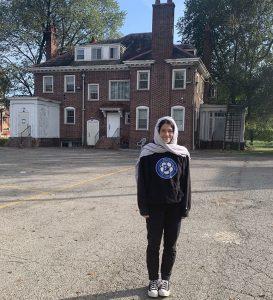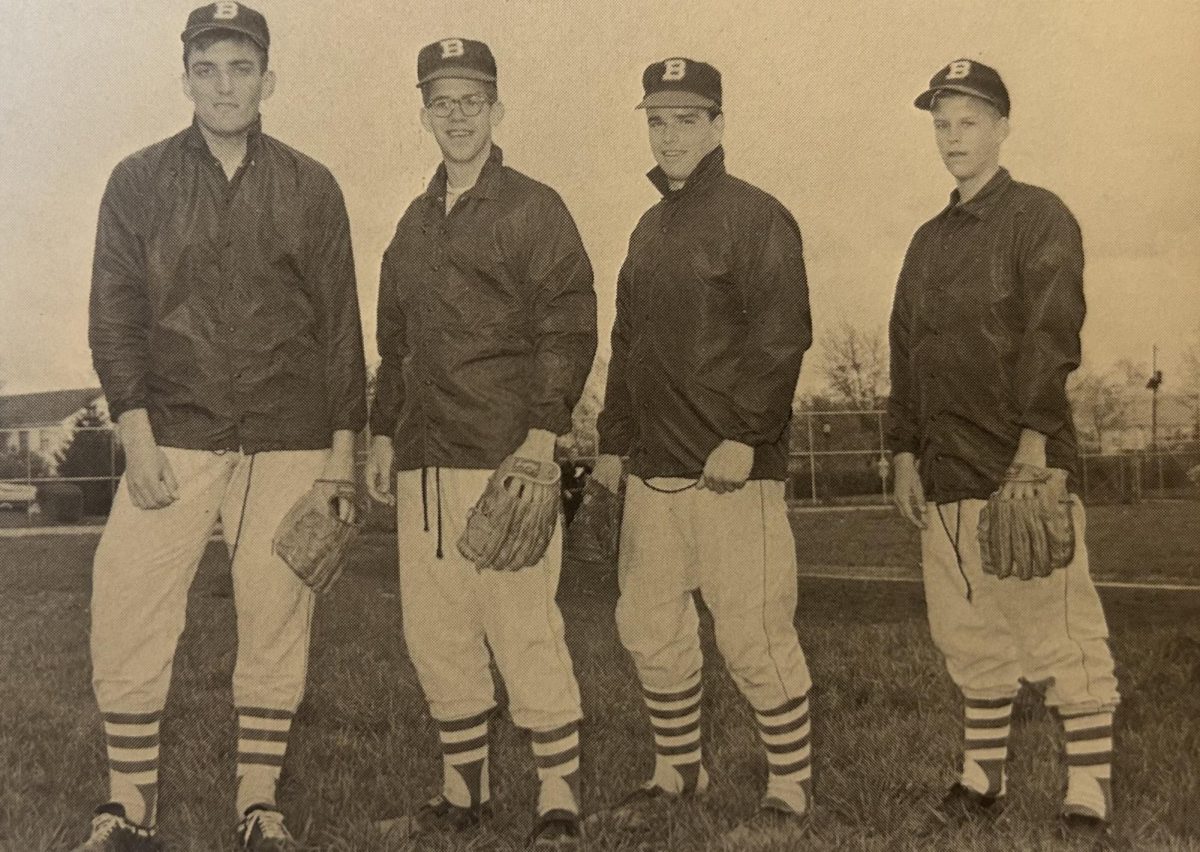As I entered the Islamic Center on East Broad Street to experience a Muslim service for the first time, I instantly felt overcome by an accepting and kind energy. I was welcomed by Imam Shabaan Haji, who leads the prayers at this mosque.
Haji has been an imam at this center since 2003 and said that throughout his time, there has been a community of 400 who consistently attend the mosque. They hold elections each year for the president, treasurer, vice-president and secretary, he explained, adding that these people help to take donations and welcome more people to the mosque.

This mosque had been a home prior to its purchase in the ‘60s, Haji said. It is a three-story building, with the prayer room at the top floor. In this room, there is a stand where he gave the prayer. There were no grand fixtures of any religious figure, which surprised me.
Since I was entering the mosque with minimal prior knowledge, Haji first explained to me what the main parts of Islam are. He said that the five pillars of Islam are essential to understanding anything else in the religion. His openness and willingness to talk about the religion he practices every day was kind, considering that I didn’t know much about Islam.
Haji explained that the five pillars are Shadah, Salah, Zakat, Ramadan and Hajj in Arabic. In English, they translate to belief in one god, prayer, charity, fasting and a trip to Makkah once in your life.
“These pillars of Islam are very important for Muslims because they are the main things we believe in and follow in our day to day life,” he said.
Along with the pillars of Islam, there are the pillars of Faith that include to believe in one god, angels, judgment day and destiny, Haji explained. He added that they believe in the books of God, Moses, the Torah, David, Jesus Christ and the Karun.
Haji said that believing in both the five pillars of Islam and Faith is essential to being Muslim.
Prior to the service, I reached out to Haji to ask about the proper attire for the mosque. He said that it is a sign of respect to wear a headscarf and completely cover yourself when attending. Initially, I was nervous to go into the service with a headscarf but became more comfortable when I was greeted kindly by the people there.
As people entered the mosque, they took off their shoes and faced Haji. Prior to praying, everyone has to wash themselves to be ready, Haji said. He explained that this process is called wudu in Arabic and cleans people of anything in their outside life. The attention to detail that goes into the process of prayer surprised me but made me realize how much effort Muslims put into their religious services.
The service began with a call to prayer from Haji. It was an Arabic prayer that sounded similar to a song, with a long chorus and repeated statements about God.
Those who were performing the prayer had a repetition of movements, including bowing and sitting up. Haji explained that each repetition was known as a unit. They also recited song-like prayers back to him in Arabic. I was interested in how the attendees were able to memorize such a complex pattern with limited guidance as well as how there was not a singular arrival time for the prayer but rather was determined by each individual.
“The chapters (prayers) are only seven verses,” Haji added. “It is in Arabic, but no matter where an imam is from, they all recite it in Arabic.”
The short length of the prayer surprised me, but it made sense since everyone practicing Islam has to memorize it. For each prayer, the people must face Makkah, Saudi Arabia, the location of the most sacred mosque in Islam: the Kabah. All Muslims are encouraged to visit this location at least once in their lifetime, Haji said. This shocked me because it is such a specific detail that everyone must follow to pray.
The environment of the mosque was calming. There were no sounds other than the prayer from Haji and those who attended this service. The service was shorter and there were fewer attendees than I expected.
Prayers occur five times a day and are run the exact same way each time, Haji said.
“There is a 6:30 a.m., 2 p.m., 5 p.m., 7:30 p.m. and 9 p.m. service every single day,” Haji explained. “They are each called different names like Fajr, Duhr, Asr, Maghrib and Isha, but entail the same prayer.”
Fridays at 9 p.m. are the most popular days for the mosque because it is the main day of prayer, just as it would be for Christians on Sunday, Haji added.
Although various media outlets have built stories about how Islam works and the people who practice this religion, Haji explained that the reality of Islam is not what it is portrayed as.
“Islam is a peaceful religion, and we respect all religions because we are all a creation of God,” Haji explained. “We accept and welcome anyone to the mosque no matter who you are.”


















